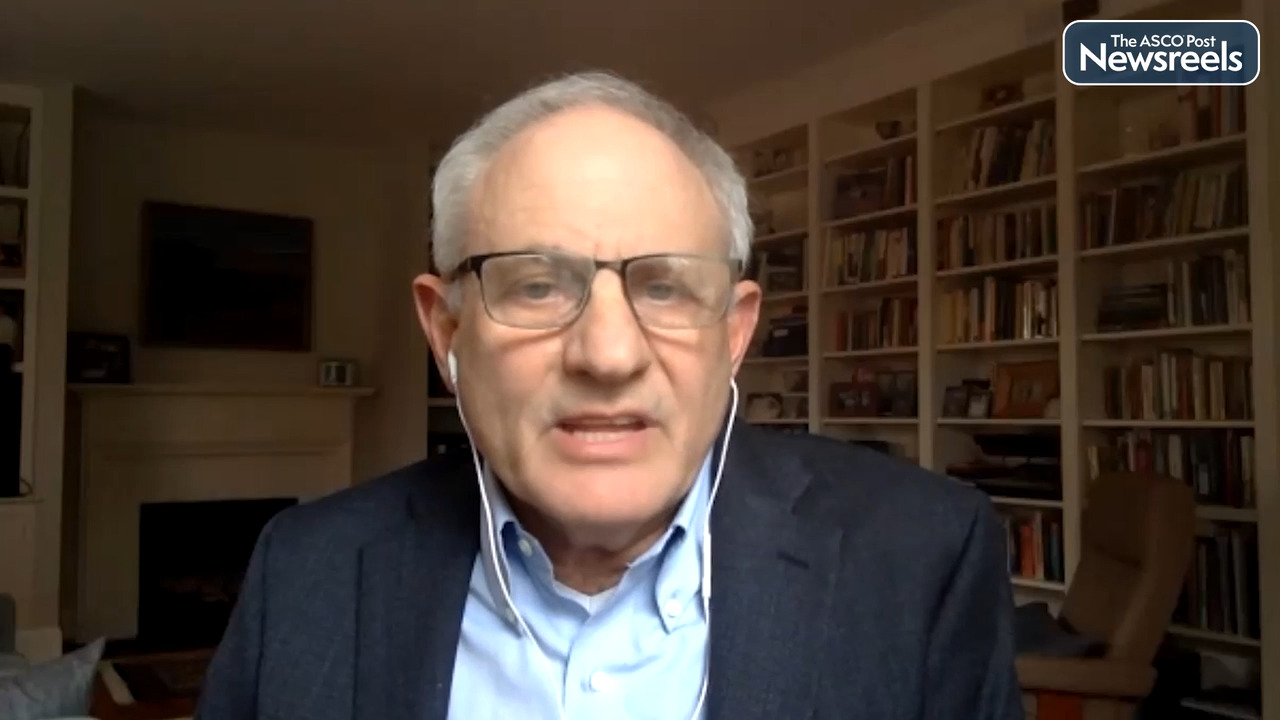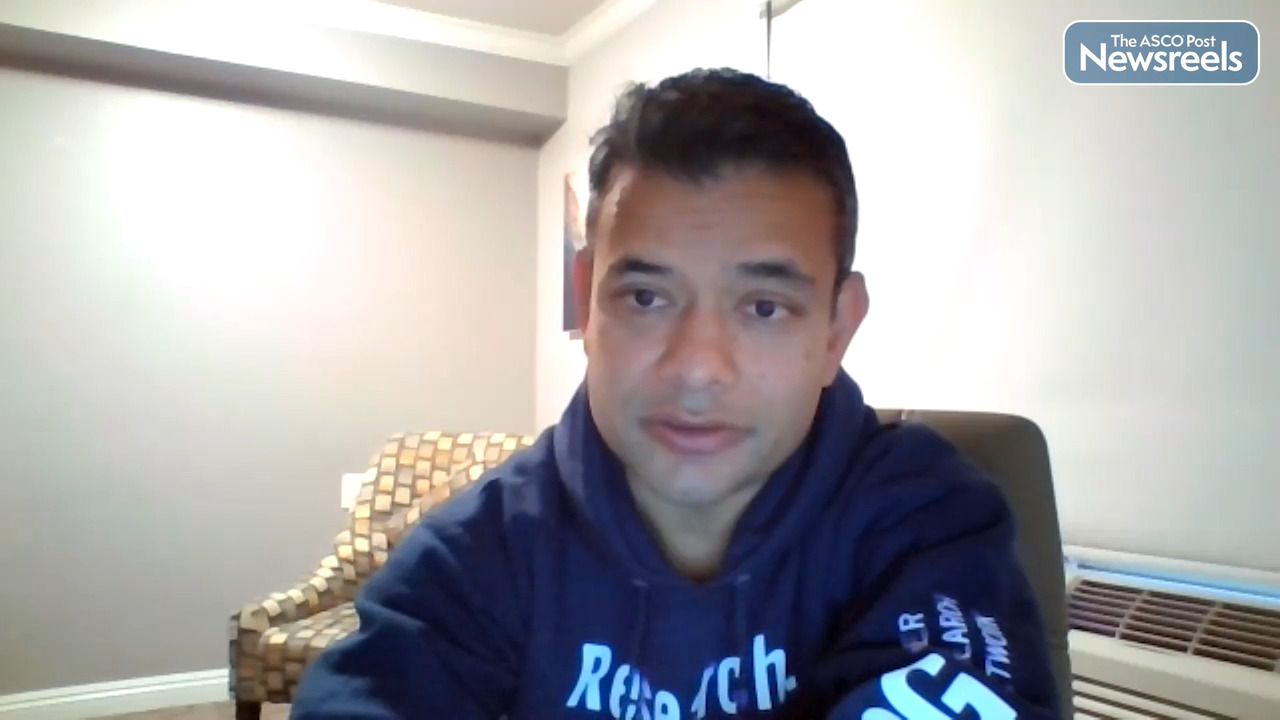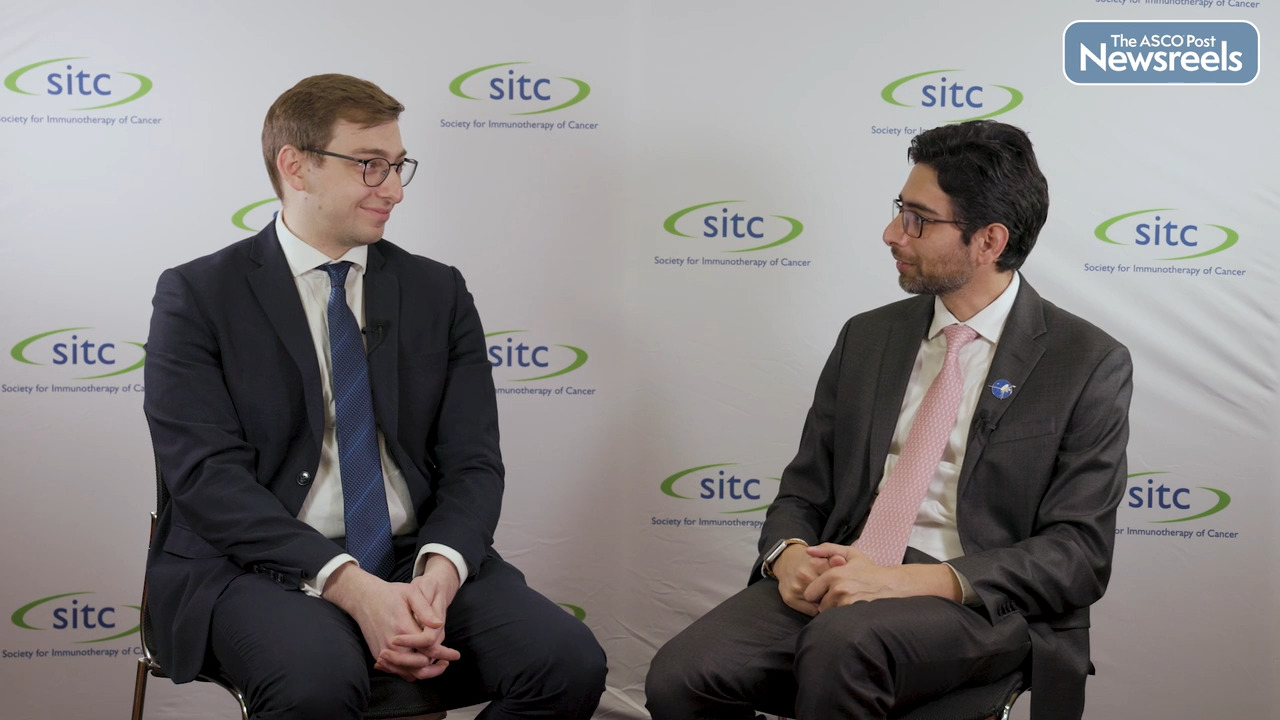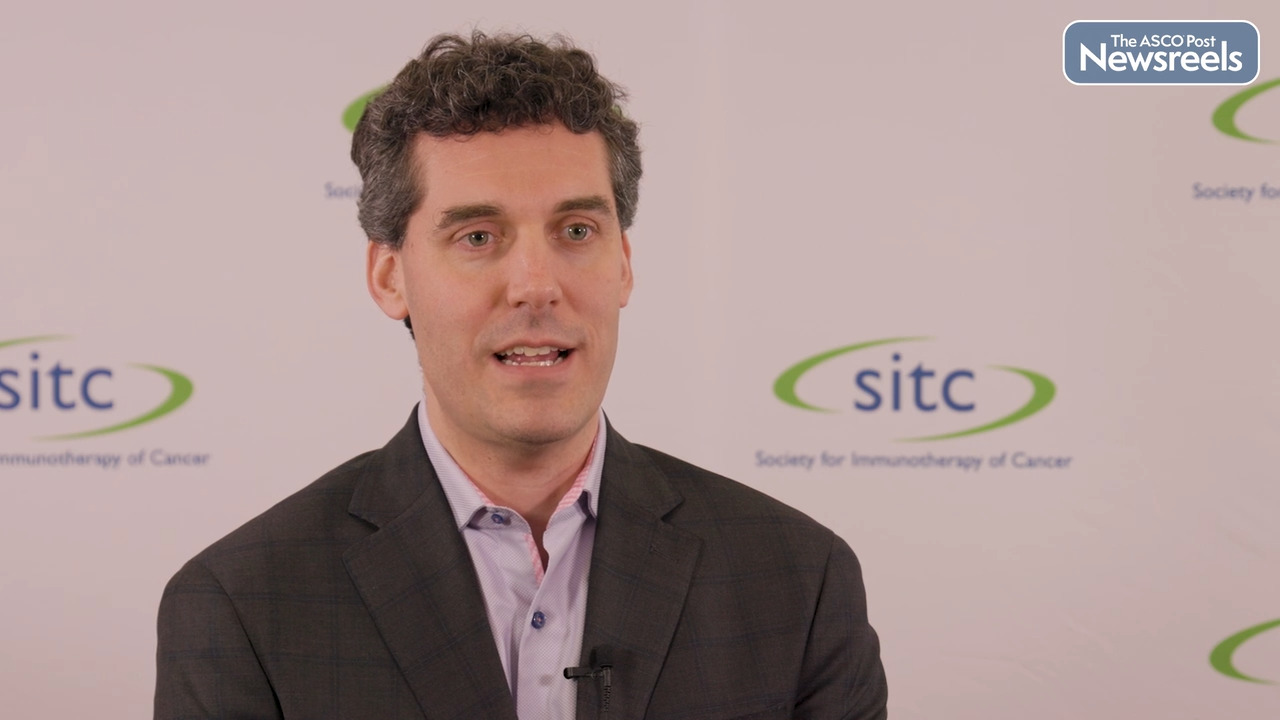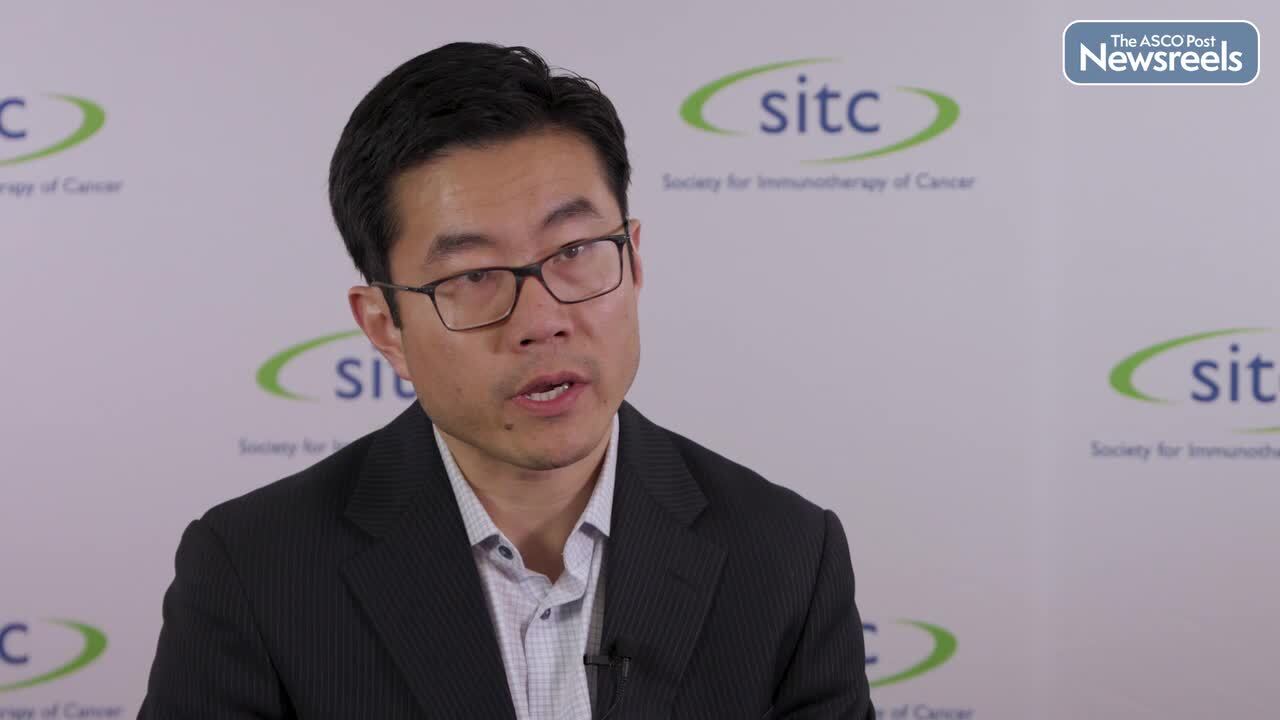David Reardon, MD, on Glioblastoma: A Microbiome-Based Vaccine, Nivolumab, and Bevacizumab
SITC 2022
David Reardon, MD, of Dana-Farber Cancer Institute, discusses phase I/II results from the EOGBM1-18/ROSALIE study, which showed the EO2401 vaccine plus nivolumab generated systemic immune responses correlating with efficacy in patients with recurrent glioblastoma. Adding bevacizumab to this combination appeared to improve efficacy. (Abstract 642).
The ASCO Post Staff
Michael B. Atkins, MD, of Georgetown Lombardi Comprehensive Cancer Center, explores recent clinical trials in immuno-oncology in which the phase III trial produced markedly different results from the phase II trial. To help understand the potential value to patients of late-stage trials of treatment combinations, the Society for Immunotherapy of Cancer has developed a checklist for investigators, applicable to any regimen in which immune modulation is an important component of the antitumor effect.
The ASCO Post Staff
Sumanta Pal, MD, of the City of Hope Comprehensive Cancer Center, discusses phase I results from the COBALT-RCC study, a first-in-human clinical trial exploring CD70 CAR T-cell therapy in patients with clear cell renal cell carcinoma. The agent appeared to show an excellent safety profile with no unexpected toxicities and antitumor activity. One durable complete response is the first to be achieved with allogeneic CAR T-cell therapy in patients with relapsed or refractory solid tumors, offering proof of concept for further exploration of CD70-targeted CAR T cells in renal cell and other CD70-positive malignancies (Abstract 558).
The ASCO Post Staff
Talal El Zarif, MD, of Dana-Farber Cancer Institute, and Abdul Rafeh Naqash, MD, of Stephenson Cancer Center at The University of Oklahoma, discuss the results of their cohort study of patients living with HIV and metastatic non–small cell lung cancer, who are often underrepresented in clinical trials, and the safety and efficacy of treating this unique population with immune checkpoint inhibitors (ICIs). The data showed that patients living with HIV and lung cancer had similar toxicity profiles and clinical outcomes as did those who did not have HIV and received ICIs (Abstract 437).
The ASCO Post Staff
Michael A. Postow, MD, of Memorial Sloan Kettering Cancer Center, discusses new findings on the correlation between CD8 cell PET imaging with zirconium-89–crefmirlimab berdoxam and CD8 cell immunohistochemistry in patients with advanced cancer receiving immunotherapy. Noninvasive CD8 PET scanning with crefmirlimab berdoxam permits whole-patient, longitudinal CD8 assessment, which is currently under investigation as a biomarker for immunotherapy responsiveness and may be a useful tool for immunotherapy development and clinical management (Abstract 1472).
The ASCO Post Staff
Roger Li, MD, of the H. Lee Moffitt Cancer Center, discusses results from a phase II single-arm study of CG0070, a cancer-selective oncolytic adenovirus that creates mechanistic synergy with immune checkpoint blockade. In this trial, the virus was combined with pembrolizumab in patients with non–muscle-invasive bladder cancer that is unresponsive to bacillus Calmette-Guérin. At 3 months, 88% of the 35 patients enrolled achieved a complete response (Abstract 666).
